Geek Culture Exclusivity and Sexism
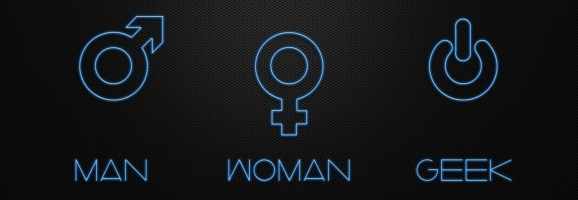
Geek culture is bigger than ever thanks to greater than ever access to its art and increased ways to connect with other geeks. My hometown had no comic book store and only one major bookstore which didn’t even carry comics, so it wasn’t until I could drive myself one town over that I could buy my own graphic novels. And it wasn’t until I went to college that I had an internet connection that didn’t tie-up the phone line. Now I find myself connected to a large and divided meta-community that has a love-hate relationship with itself when it shouldn’t be that way.
I write myself into this piece in part because many have shared my experiences and also because to not do so would be too impersonal for the observation I am writing on. Like me, many simply loved geeky things in elementary school and got ridiculed and/or bullied for simply liking Batman, Sonic the Hedgehog, and Pokémon. And we felt alone in our tastes except for maybe a sibling or a serendipitous friend. Geeks and nerds in the popular media were reflected as something negative and not to be a part of with characterizations such as the Simpsons’ Comic Book Guy or Conan O’Brien’s mocking imitations. In the current day this continues with shows such as The Big Bang Theory. However, as more people acquired internet connections, and sites like YouTube expanded, we geeks realized that they weren’t alone, and that we’re actually pretty cool people.
Still, there is some truth to the caricatures that the Simpsons et al. portray. The number of “self-proclaimed geeks” continues to grow exponentially due to increased access to geek culture through media platforms such as Netflix, and downloadable comics. As that number rises, the ones who wore the “geek” label in shame feel their place threatened. For them, being a geek (or nerd based off thus far largely un-agreed upon definitions) is a label of being prosecuted and hurt worn like it’s a freakin’ Purple Heart. Furthermore, it became a sub-culture consisting of a safe place for socially inept and physically unappealing boys. To have that label threatened by going mainstream is completely unacceptable to the (for lack of an existing term) “classic-geeks.” People now are not being teased and bullied as geeks, but holding the label proudly –people who are more adjusted to socially normalcy and are at least more average looking.
This is their perception, and it goes a bit too far:
http://www.youtube.com/watch?v=nR6CY3pFjYM
I am someone who graduated with a degree in science, writes for two popular art websites, and currently creates his own fiction, yet I’m sure that many wouldn’t classify me as a “geek” because I have a physically fit body (that I work for), don’t require reading glasses, and have had a girlfriend at one point in time. The “classic-geek” veraciously objects to guys like me (as well as more popular and better-looking people than me) becoming attached to the culture they are so embedded with, and they push back proportionately strong against any attempted change to that culture. They defend the words “geek” and “nerd” as fanatically as the radical right does “marriage.” And they revile Comic-Con for expanding its platform beyond comics and, most erroneously, are sexist.
With the anonymity of the internet, most attacks on self-proclaimed geeks originate from behind a keyboard –as places like conventions are extremely friendly. A disproportionate amount of these attacks are against easy to target girls –sexy and otherwise. Take cosplayers for example. Accusations regularly get thrown at girls in costume as not being geeks, merely using their bodies to gain attention, and really knowing nothing about geek art. They perceive the “booth-babe” tactic –using attractive girls to lure people to their booth in order to sell product. The assumption of girls in cosplay not being geeks because they’re too sexy is completely unfair. Though they may on occasion be fakers and merely looking for attention, the unwarranted and baseless attacks against them is prejudicial hate speech. Actually, many “booth-babes” are geeks themselves, as it makes sense from a business standpoint to hire someone who knows geek culture and the product they are pushing. And so what if they are fakers? That doesn’t exactly make them horrible people. And if the girls aren’t outstandingly sexy, they get ridiculed for that as well –holding women to an unrealistic standard portrayed in popular art. It doesn’t have to be something on display such as cosplay either. Female show hosts on popular culture shows receive the “fake” accusation or attacks saying that they only got where they are based off their sex regularly and shouldn’t have to deal with the crap that they do simply for the way they look or being gender they were born as. What’s worse is that geek girls often are the ones throwing the accusation at other girls.

Any pronounced opinion becomes a target on the internet, including this article. I may very well be called fake or accused of having an underlying motive for defending a sub-group in girl-geeks that I am obviously not a part of. Maybe I sound preachy, but I mean what I say. Geeks talk about how Star Trek is more than just a space adventure –about how Captain America taught them to defend others against bullies. Somehow these classic-geeks don’t get the moral of Magneto’s story.
Geek culture should not be exclusive. It’s based on the love of obscure popular art (that admittedly is becoming less obscure). Its inclusive nature is in part what attracted classic-geeks to it in the first place, and much of its quality deserves to be appreciated in the mainstream. I implore these classic-geeks to cease to try to make it exclusive and not judge us harshly just because we don’t know what happened to Spider-man last month in the comics. There are people who call themselves geeks who aren’t, and there are fringe-geeks, and there are deeply entrenched geeks who L.A.R.P. and write self-insert fan fiction. Being a “classic geek” doesn’t make you a “vintage geek,” and it is possible to love part of it but not all of it. Ultimately, it is not about you, it’s about the art. Happiness in finding something you love is much more beneficial than toxic internet comments. Instead, share what you think is the best artwork out there and be inclusive, and maybe you‘ll turn that mere pop art appreciator into a real geek.
What do you think? Leave a comment.
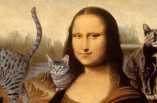
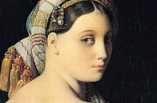
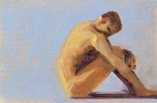
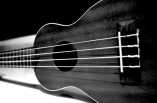
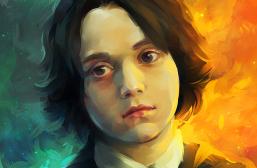
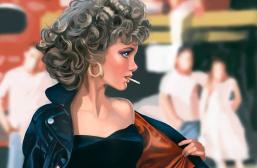
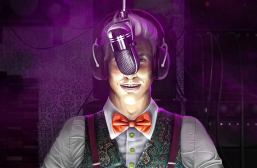
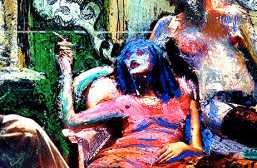


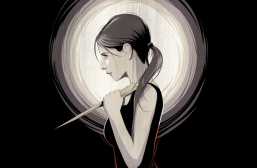
The geek culture has mainstreamed like never before in recent years. This is a good period to be a proud geek for sure 😛
Great article. I’ve had the fortune of meeting a great group of fellow geeks in the past year. A few of them are girls, and attractive girls at that. The thing I notice with female geeks, is that if they’re not being called fake, they’re being hit on by each and every male geek around them, which is a lot at my college. It’s made more annoying by that fact that they all have boyfriends and the guys don’t seem to get the hint. Oh boy, now I’m just babbling.
I’ve been called a fake geek many times, which always makes me laugh. Anyways, once again, great article.
Lovely post!
This is a great post! I have followed the complaining about real vs fake geeks for a bit now and find it all very silly.
Humans need so desperately to label and be labeled, yet we cringe at their use by others.
This is a cultural subject that could stand some real scrutiny in much the same way we look at class and race grouping systems.
I enjoyed reading this article a lot! I think what strikes me as most interesting about the movement from ‘comic-Con to catwalk’ popularity is how it evolved.
I’d suggest, like yourself, shows such as the ‘Big Bang Theory’ take the nerd stereotype to the masses by way of clever writing. I think it was Simon Helberg that commented on the popularity of the show, suggesting it was identifiable not because of the frequent references to X-box, Star Trek or Rubik’s cubes, but rather the insecurity of the characters is an easy trait to align yourself with.
As a Woody Allen lover, my nerd glasses are the result of his genius!
Great article. It definitely feels sometimes like there’s no right way to be a geek, just a lot of really wrong ways. If people could get over their crap, we’d have a lot less pointless, arbitrary hatred flying around.
Glad you all liked it. But I am puzzled by the lack of female feedback. I hope everything came out the right way.
This is such an accurate article. Being a geek and what constitutes a ‘real’ fan have been areas of major disagreement recently. Enjoying and appreciating something, even if you are critical of it, is really all it takes to be a fan, regardless of what you geek out about. And it’s so strange that people who have experienced how hurtful it is to be excluded, would try to exclude others.
I really like this article. It draws attention to something I’ve seen popping up a lot online. As someone who can be considered a geek by some standards, I do get intimated by the male culture that surrounds being a geek. Although that is changing; women are getting more involved in fandom/geek/gaming culture and exclusivity and sexism are being called out more often.
And I think the personal touch is great. Often the people who know the most about these communities are the ones involved in them, and they can offer a more in depth perspective as you did.
You know it’s funny – being a geek or having the appearance of a geek seem to be the new trends teens and young adults strive for nowadays. It’s interesting to be in my late teens now and observing the gradual and subtle changes to what is considered “cool” pop culture. If you look at recent blockbuster movies that were the most successful in box office, you would see the Iron Man franchise, Batman, Superman, Star Trek, and other comic-book-based narratives. We’re living in a great time for a revolution or rather, recycling of popular culture and I think that’s something to celebrate. I agree that women often get left out in what should be a dynamic art community. Thank you for emphasizing with the overlooked female geeks out there!
Nicely said!
From what I can tell, geekdom on some level is being treated as an institutionalized religion (who’s in and out, true believers, etc.) with a pantheon of gods in the form of the Marvel and DC Universes.